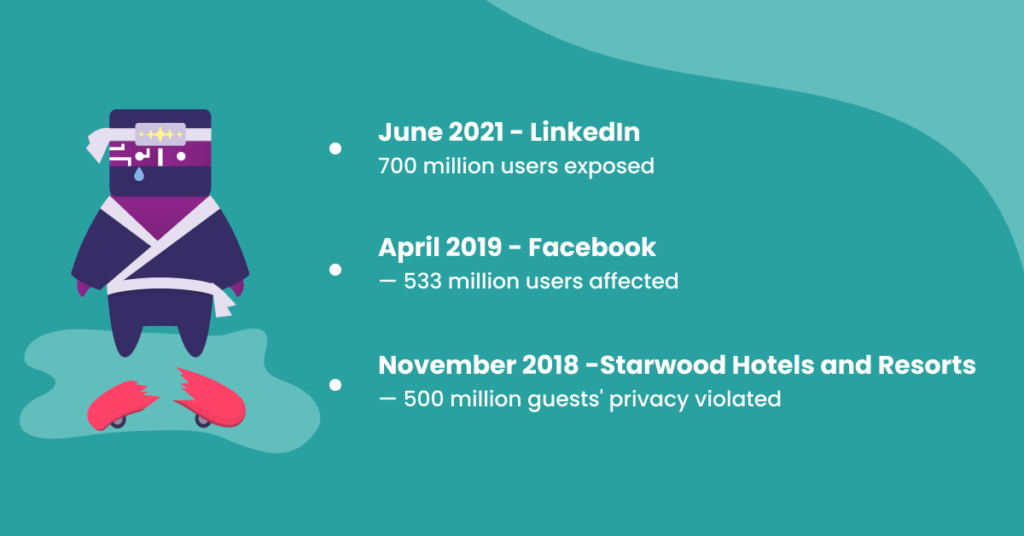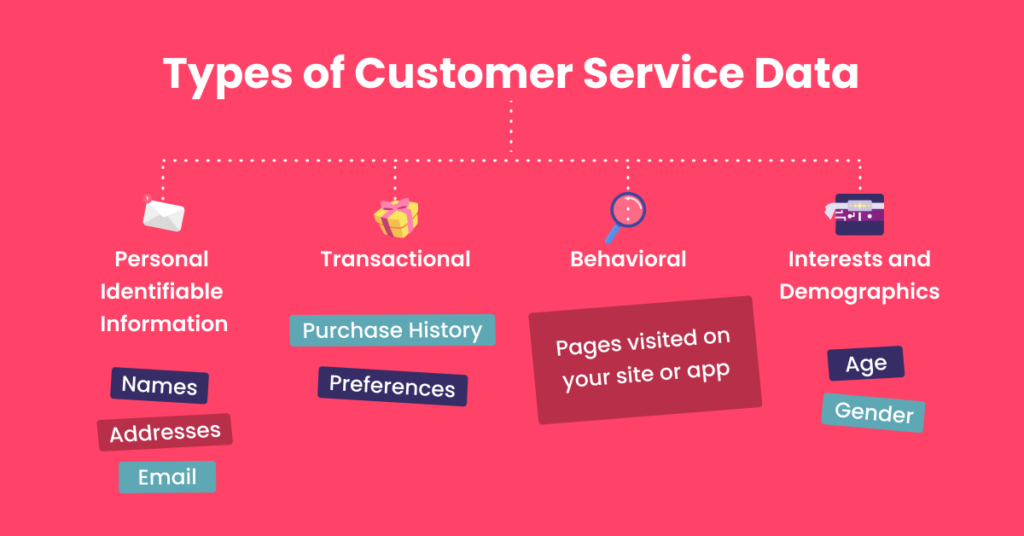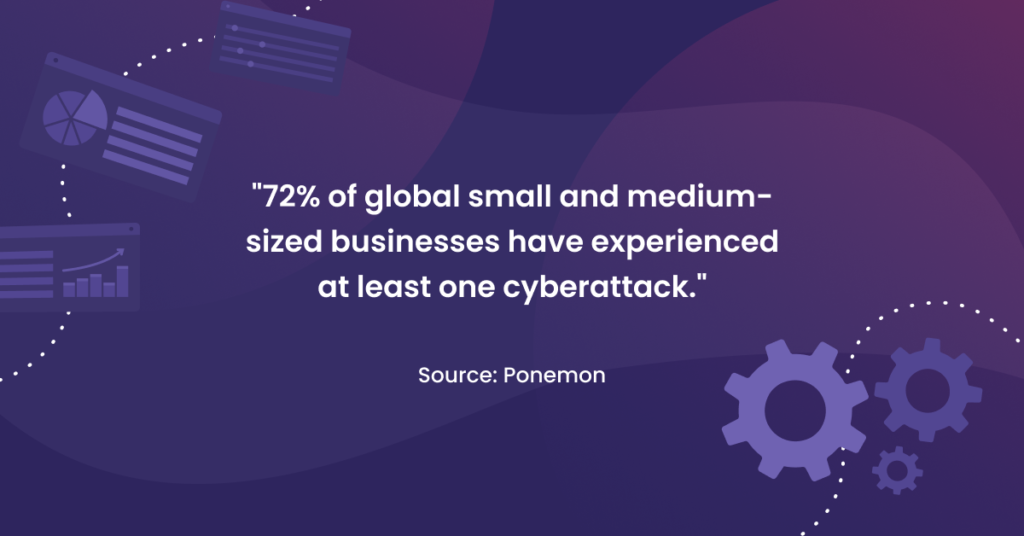Data is powerful, but it’s also vulnerable. When customer data is in your hands, you are potentially putting yourself at risk of a cyberattack that could leak sensitive information — and customers are vulnerable to identity theft if their personal information gets out. But mastering customer data protection isn’t as simple as it may seem.
Technology has increased customer expectations to a point where it’s almost impossible to not disappoint them. Most customers expect you to know everything about their needs and wants (without asking for their data or tracking their behaviors) and are annoyed by having to repeat themselves.
And one way or another, customer service and data go hand in hand, which means you need to know how to keep customer data safe.
Here’s our beginner-friendly guide into the meaning of customer privacy and ways you can safeguard it.
Customer data protection in customer service
Companies are regularly making headlines for violating their customers’ privacy.

In June 2021, LinkedIn suffered a data breach with 700 million users losing their data. April 2019, Facebook had a data breach with 533 million users witnessing their data going live online. November 2018, Starwood Hotels and Resorts were hacked with data of 500 million guests getting stolen. And the list goes on.
In the age when customer data is money, protecting customer information should be more important than ever. Yet the breaches keep coming, with each new one stepping up the game.
From big data breaches to unauthorized sharing of information, it’s safe to say that at this point, most of us have become numb to the news. After all, in a world where our Google searches are stored and archived for later use, where every Facebook post you make is potentially searchable by future employers and landlords, and where your browsing history is saved for posterity in a file on your home computer, finding a business that knows how to protect customer data is a blessing.
This is why all socially responsible companies need to find unbreakable ways of protecting customers’ personal information.
How to protect customer data in customer service
1. Use the right tools

Customer service data ranges from Personal Identifiable Information, aka PII (names, addresses, email addresses) to transactional (purchase history and preferences) to behavioral (what pages a customer visited on your site or app) to interests and demographics (age range, gender).
How much of this is collected varies from company to company and department-to-department. But one thing all customer service organizations have in common is a need for good tools for working with all of it.
Before adding any tool to your stack, consider the risks you will be running with customers’ information. If the tool stores your customers’ PII, there will always be a risk of data breach.
This is why at Kaizo, we do it differently.
Kaizo protecting your customers’ privacy
Kaizo is an all-in-one customer service platform that is all about giving your customers a great experience — and that experience is never just about the purchase, it is also about the feeling of trust and security, among others.
We have found a way to help you empower your agents, rate and give them feedback on tickets, track tickets, etc. — all without storing the PII, your customers’ Personal Identifiable Information. Even more than that, our platform doesn’t store subject lines, comments, attachments, and custom fields of tickets as well as the names and personal details of your customers.
This means you and your Agents can remain as productive as possible without endangering your customers’ privacy.
Ready to start your customer service excellence journey with Kaizo?

2. Seek transparency in securing customer data
Any thriving business has to know how to protect the security of information about customers — forming the right alliances from day one is, therefore, paramount not only for revenue, but also for your public image.
Keeping data secure at every stage of your lifecycle requires transparency in securing customer data. This means that all the tools you use in your work need to be open about their data storage approach.
You should be able to easily find out where your customers’ data is stored, who has access to it, what level of encryption it has, etc.
Any tools that aren’t open about their security features — like a VPN or a cloud storage solution — could leave your customer data vulnerable to attacks.
3. Give ownership
Protecting customers’ personal data is not just a legal obligation. It’s a moral and ethical issue, too.
A company’s customer service team is the first line of defense in preventing identity theft. You can’t prevent it if you don’t know about it, so it’s vital for your Agents to handle customer requests with discretion and care — and you need to coach them accordingly.
In most cases, all that’s needed is a little education and awareness — your employees will already have the intelligence and skills to do the job, but they may not be aware of the importance of protecting your customers’ personal information. At times, though, you may also need to make changes to your processes or procedures to ensure that sensitive customer data is handled appropriately.
If you’re in charge of your organization’s customer service department, then you’re in control of this process. Your first step should always be educating your agents on the importance of protecting customer information at every stage of their interactions with customers.
4. Be open with customers

Ponemon, a privacy analysis firm, conducted a study into cybersecurity for global small and medium-sized businesses. It found that 72% of businesses have experienced at least one cyberattack.
And considering how high the stakes are these days, it’s only fair that customers get to learn about what they are signing up for.
When it comes to keeping their data safe, most customers want two things:
1) they want to know what information you gather and how you use it
2) they want to feel like you’re working hard to keep that information safe
In a perfect world, most customers want for you not to gather any of their personal data at all. This would also mean no cookies, which collect information about your browsing activity.
Unfortunately, the most useful services use the most user-gathered data. As a result, most companies have chosen to adopt some form of data collection strategy, whether it’s from cookies or from other sources.
That’s why the best way to work with your customers through these issues is by being as transparent as possible about your data policies in general. And by actually taking the needed security measures to protect customer data.
Final thoughts
Protecting customer data is incredibly important.
This means not only protecting it against outside intruders, but also against insider errors that can happen if you’re not fully aware of the risks of letting customer information out of your grasp.
As a customer-oriented company, you need to make sure to meet all the needs of your customers, including those that concern security.
We’re happy to help you give your customers the level of service they expect without risking their safety. Book a call for more information!



